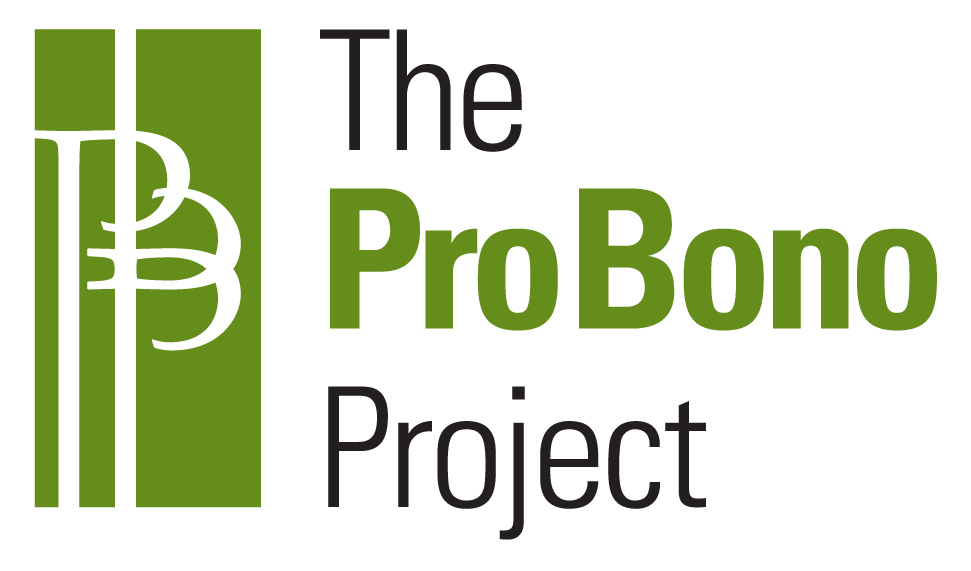Almost every month, there is a new group of law students from universities across America. Interestingly, many of those law students represent a variety of world cultures, such as China, India, France, The Netherlands and others. This past month, The Project hosted what may have seemed a bit like a cultural exchange with law students from the University of Illinois College of Law and American University Washington College of Law.
As usual, Chief Legal Officer Linton Carney, Staff Paralegal Zakiya LaGrange, Staff Attorneys Ona Sanders, Patricia Guzman-Weema and Jesse George, along with a host of volunteer attorneys put the law students to work on family law, succession and CINC cases.
They learned to file documents with the court, to listen with great patience to client stories, to do research and talk to various resources at different departments within City Hall. The goals, of course, are to give them a variety of tasks that builds their hands-on experience, while at the same time helping The Project move through the ever-increasing number of cases handled each year.
In they end, what they ultimately learned was that the need for public service law and lawyers is tremendous.
In a 2013 New York Times article, reporter Ethan Bronner noted that Legal Services Corporation's statistics showed that 60 million Americans - up 35% since 2005 - qualify for its services. But the LSC calculates that the civil legal needs of more than 80% of the working poor go unmet annually.
Here are some thoughts from the students about their time at The Project.
Not only did we gain valuable experience during this week, but we were able to help your organization provide legal services to those that need it most, all while enjoying your wonderful city.
Matt Russo
University of Illinois College of Law
Under the supervision of Zakiya LaGrange, I wrote petitions of divorce of no fault for people who are economically challenged ... and went to court with Zakiya to file cases. It was the first time I dealt with family law and I was amazed by the large quantity of divorce cases and the quantity of documents needed to file a single non-fault divorce case.
It was a good experience for me to get familiar with the procedure, the format of documents, the techniques of dealing with clients. The most important is that I am aware that there are a significant amount of people who need legal aid.
Yu Wang
University of Illinois College of Law
[At] The Pro Bono Project in New Orleans, I worked at the divorce workshop. In the first few days, we learned how to file the documents. Then we try to work as a volunteer for the petitioner in divorce process. First we call them to make an appointment, then on that day we help them to check the information in the petition and bring them to the attorney. The last thing is to deliver these petitions to the court.
Our advisor Zakiya LaGrange helped us a lot. She is really a kind and patient person, and taught us many skills and knowledge. She always works with a huge enthusiasm. I have learned a lot and really thank Zakiya for her help and thanks [to] everyone in The Pro Bono Project office.
Yunkai Goa
University of Illinois College of Law
The Pro Bono Project has proven to be an enlightening experience.
As a 1L, this has been my first true legal experience and I have seen the practical and meaningful side of the law. In the past week, I have attempted to finalize divorces, network with local attorneys, comfort clients and find new clients.
After only one semester of law school, The Pro Bono Project has shown me who truly requires legal assistance and how difficult it can be to obtain such assistance. Most importantly, I have been able to help those with limited resourses and develop my own skills in the process.
Sanat Bhole
University of Illinois College of Law
During my time at the Pro Bono Project I had the opportunity to delve into several different aspects of the law while directly engaging with many of the vulnerable and underrepresented community members in New Orleans.
In my first days on site I learned about providing legal services to those who had family members die intestate. It was my responsibility to get in contact and fill out client intake forms with those who requested services from The Pro Bono Project.
One day, I shadowed an attorney to Jefferson Parish Juvenile Court, where I observed several custodial hearings that determined whether mothers were capable of caring for their children. The attorney graciously introduced me was able to the judge and her clerks and afterwards explained the process of the proceedings.
I also helped The Pro Bono Project’s attorneys with several divorce cases, and I assisted by making phone calls and completed client-intake forms. Finally, I had the opportunity to participate in a bankruptcy clinic, where I observed a pro bono attorney interview clients and determine whether he or she was eligible to file bankruptcy.
Overall, I learned a lot about various aspects of the law that I never thought to explore in the past. Every single individual who works with The Pro Bono Project was extremely knowledgeable, friendly, and eager to teach. There was never a dull moment in the office, but our supervisors were accommodating if we wanted to use an afternoon to explore New Orleans, as long as we bribed them with king cake. I highly recommend volunteering with The Pro Bono Project, and I cannot wait to bring my next team down to work with them again. Thanks again for everything!
Ryan Schmidt
Public International Law and Policy Group, Research Associate
American University, Washington College of Law
J.D./M.A. Candidate, Class of 2017




